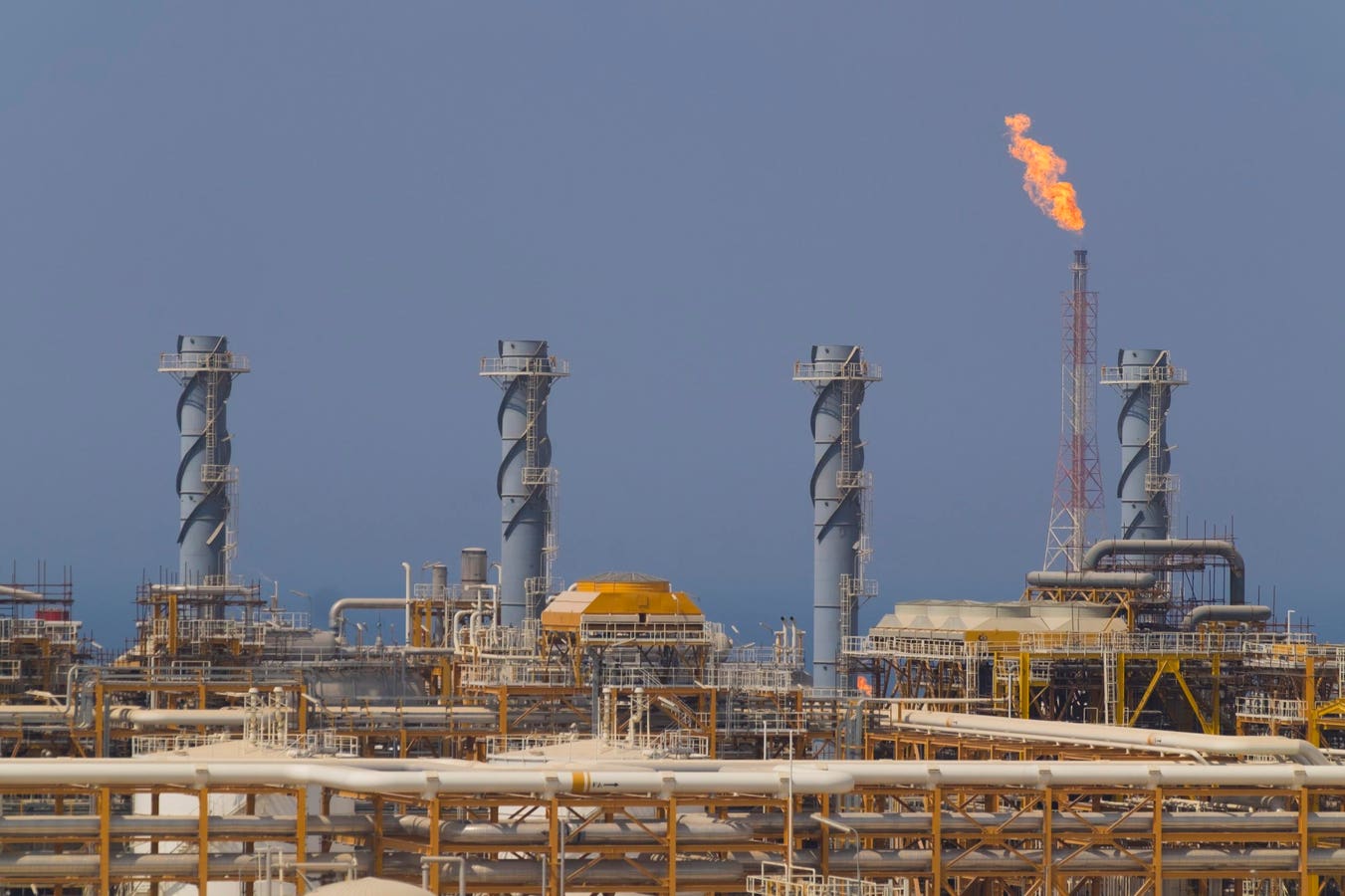After the first oil crisis in 1973, President Nixon confidently announced “Let me conclude by restating our overall objective. It can be summed up in one word that best characterizes this Nation and its essential nature. That word is ‘independence.’” Now that the United States has achieved energy independence, what does that mean in terms of the economy, foreign policy, and politics? Calls from some like Senator Lindsey Graham that the U.S. threaten attacks on Iranian oil fields in the case of escalation, such as killing of hostages, might seem suggest it.
Every president from Nixon up through George W. Bush insisted that America needed to become energy independent, no doubt to the amusement of oil producers around the world. And while some actually attempted to do something about it, such as Jimmy Carter’s Synthetic Fuel Corporation and Bill Clinton’s Partnership for a New Generation of Vehicles, energy independence is primarily the result of cantankerous George Mitchell’s pursuit of a way to unlock oil and gas from shale basins. In fact, the policy that most affected our oil imports since 1973 was Nixon’s price controls on U.S. oil production, which actually increased our dependence on imported oil.
Yes, the United States still imports oil and gas but it is a net exporter of energy, including oil and gas, as the figure below shows. Such imports as occur are mainly for efficiency: heavy oil is best suited for American advanced refineries while light oil is better used in less-sophisticated overseas plants; Canadian gas imports come into the American north while American gas goes to Mexico and around the world. Perhaps residents of Idaho spend sleepless nights fearing a cutoff of Canadian methane, but probably the price of potatoes concern them more. (Being of Irish extraction, it sure matters to me!)
The horrific attacks in Israel and its massive bombing campaign in response are dominating headlines and some have feared that the violence could spread in a way that would affect global oil markets, most probably in the case of an Israeli attack on Iran and its oil fields. That, in fact, is far more likely than a similar attack by the U.S., despite recent threats. One presumes that if the U.S. did make such an attack and oil prices spiked, Graham would blame it on President Biden, but consistency is the hobgoblin of little minds, not politicians.
Given that Iran currently exports about 1.5 mb/d, mostly to China, and the world oil market is relatively tight, the loss of Iranian exports—through military attack or tighter sanctions—could be severe. The IEA estimates that global inventories dropped by roughly 1.5 mb/d in the third quarter and will nearly do so again this quarter, meaning the loss of an additional 1.5 mb/d would leave stocks at alarmingly low levels, as the figure below shows. (I have estimated the drop in OECD stocks based on a total loss of Iranian exports from October 1st, and assuming half the loss was to OECD inventories.)
But has U.S. energy independence made politicians more confident in suggesting measures such as an attack on Iranian oil fields or righter sanctions? That might seem so, and many in the oil industry would like to feel they have enabled a stronger foreign policy. I would argue that the enormous economic benefits from the U.S. domestic oil industry overwhelm any other considerations, and should certainly deter those who want to reduce exploration and development of new oil and gas fields. But the foreign policy impact is more questionable.
While the U.S. government is accused of ignoring human rights violations in major oil producers because of the importance of oil, it has had no difficulty imposing sanctions on Iran, Libya, Russia and Venezuela over their policies. Similarly, support for Israel has never been weakened by our dependence on oil; the figure below shows a number of steps over the years that presumably angered Arab oil exporters, and many occurred without apparent regard for our dependence on oil imports. Most notably, the Nixon Administration, warned in the fall of 1973 that overt support for Israel in the October War would trigger an oil embargo, made a very public display of sending weaponry to that nation.
Ultimately, it must be said that while energy trade is a factor in international relations, the effect on foreign policy—especially in the United States—tends to be greatly exaggerated. The biggest difficulties in our relations with Israel have involved not fears of an oil cutoff but unhappiness over the expansion of settlements in occupied land, particularly when those appear to violate promises made to avoid such.
Should Israel attack Iranian oil fields reducing supply significantly, there are two possible responses that would ameliorate the oil price impact: higher production from Middle East producers and/or releases of strategic inventories from OECD nations. The former will depend on the calculation in oil exporter circles as to the wish to please oil consumers, and hurt Iran, at the risk of angering their public. The latter requires either coordinated action in OECD nations, which might be easier to achieve.
That is where the recent reductions in the U.S. Strategic Petroleum Reserve comes into play. Presumably, the U.S. would be expected to contribute something on the other of 0.5 mb/d to offset the loss of Iranian supply, which could be done, in theory, for well over a year. But would the Administration be willing to drain the SPR to minimal levels? Already, there are concerns that a future oil shock—always possible, always unpredictable—could overwhelm the SPR’s supply potential. As in some past cases, it is quite possible that governments will prefer to hold onto their strategic inventories (don’t call it hoarding!) and let prices rise.
Read the full article here





